Have you ever woken up after a night of indulgence, only to be greeted by a dreadful sense of anxiety that seems to overshadow everything else? You’re not alone. Many of us have experienced the phenomenon known as “hangxiety” – bad anxiety after drinking.
Let us delve into the depths of hangxiety, the overwhelming anxiety that follows a night of drinking, exploring its symptoms, causes, and most importantly, how to overcome it. So, grab a cup of tea, sit back, and let’s understand the reality of hangxiety.
What is Hangxiety?
Imagine waking up with a pounding headache, a queasy stomach, and a deep sense of unease that seems to permeate your entire being. This is hangxiety, a term coined to describe the anxiety that occurs during the hangover phase after consuming alcohol. So what is hangxiety?
Hangxiety meaning: “Hangxiety,” a blend of “hangover” and “anxiety,” describes the unsettling feelings of anxiety and unease that some individuals experience on the day following alcohol consumption.
This phenomenon of post drinking anxiety is common among people who have overindulged in alcohol the previous night or during a social event. While a hangover typically encompasses physical symptoms, hangxiety focuses on the emotional and psychological aftermath of heavy drinking.
Some individuals may feel anxious or uneasy the day after consuming alcohol, often due to alcohol’s impact on neurotransmitters and mood regulation. Hangxiety can include symptoms like increased heart rate, nervousness, and general unease.
It’s important to note that not everyone who drinks alcohol will experience hangxiety, hangover and panic attacks, and its severity can vary from person to person.
Now that we know what is hangxiety and hangxiety meaning, let’s learn about the concept a bit more through a cinematic exploration.
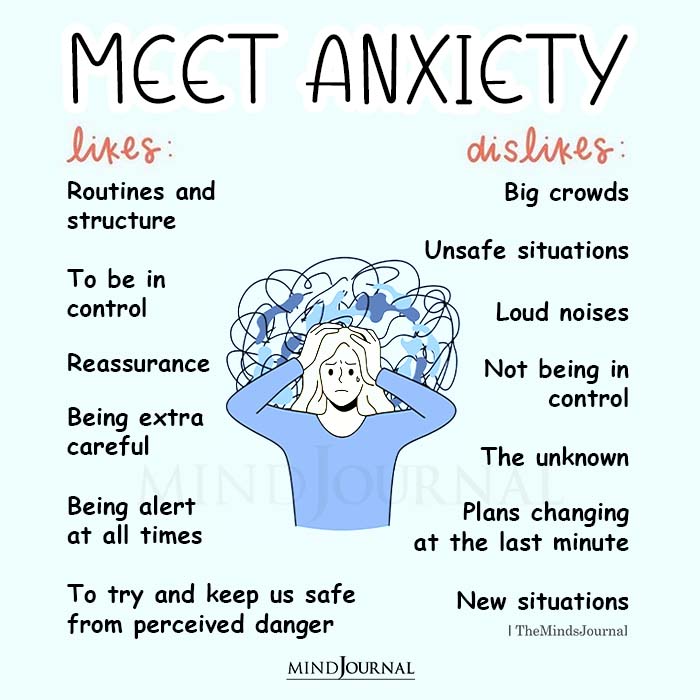
Hangxiety in “The Hangover”
The Hangover (2009), directed by Todd Phillips, offers an entertaining and somewhat exaggerated cinematic representation of hangxiety – those feelings of anxiety and unease following a night of excessive alcohol consumption.
The film follows the experiences of four friends who embark on a wild bachelor party in Las Vegas, which results in a night of chaos and debauchery. The next morning, they awaken with severe hangovers, but their predicament takes a more serious turn as they attempt to piece together the events of the previous night.

The film highlights several aspects of hangxiety, hangover and panic attacks:
1. Memory Gaps and Confusion
Just as in real-life post drinking anxiety, the characters in the film awaken with fragmented memories of their wild night. Their confusion, disorientation, and the realization that they have no recollection of significant events are central to their growing anxiety.
2. Regret and Guilt
The characters’ quest to piece together the previous night reveals increasingly bizarre and outrageous actions. Their actions and consequences contribute to feelings of deep regret, guilt, and remorse, paralleling the emotional turmoil associated with hangxiety.
3. Physical Discomfort
As the characters attempt to retrace their steps, they experience severe hangovers, physical discomfort, and headaches—all common features of both hangovers and hangxiety.
4. Anxiety and Tension
The characters’ anxiety increases throughout the film as they uncover more about their actions. Their quest mirrors the desire of individuals with hangxiety to understand the source of their anxiety.
While “The Hangover” is primarily a comedy and not a clinical case study, it effectively portrays the emotional and psychological consequences of excessive alcohol consumption.
The film offers a relatable, if exaggerated, depiction of the concept of hangxiety, making it a memorable and entertaining point of reference for discussions about responsible drinking and the aftermath of heavy alcohol consumption.
Knowing what is hangxiety and hangxiety meaning is not enough, we must also explore hangover anxiety symptoms.
Related: 12 Health Benefits of Drinking Water
Anxiety After Drinking Symptoms
Bad anxiety after drinking, also referred to as hangxiety, typically includes a range of symptoms that reflect feelings of anxiety and unease experienced after a night of heavy drinking.
These symptoms of hangover and panic attacks can vary in intensity among individuals and may include:
1. Increased Anxiety
Hangover anxiety is characterized by heightened feelings of anxiety, nervousness, and restlessness. It may be more pronounced if the individual has a predisposition to anxiety disorders. This is one of the major hangover anxiety symptoms.
2. Regret and Guilt
Individuals often experience strong feelings of regret and guilt related to their actions, decisions, or words spoken while intoxicated.
3. Intense Worry and Dread
Hangxiety often manifests as a heightened sense of worry and dread. You may find yourself ruminating over past events, obsessing over potential mistakes or embarrassing moments, and feeling a general sense of impending doom.
4. Increased Sensitivity and Irritability
Hangxiety can make you feel on edge, easily irritated, and more sensitive to external stimuli. Hangover anxiety may lead to heightened sensitivity to light, sound, and touch, which can exacerbate discomfort.
The smallest triggers can send your anxiety spiraling, leading to a heightened emotional response.
5. Memory Gaps
As a result of alcohol’s impact on memory and cognition, individuals may have difficulty recalling specific events or conversations from the previous night, which can be distressing.
6. Racing Thoughts
A common symptom of hangxiety is a mind filled with racing thoughts. You may experience a constant stream of racing and sometimes irrational thoughts, contributing to feelings of anxiety.
Your brain may replay conversations, events, or even imagined scenarios, leaving you feeling overwhelmed and unable to find peace.
7. Physical Discomfort
Hangover anxiety often accompanies physical discomfort, such as headaches, dizziness, nausea, dehydration, and fatigue. These physical symptoms can exacerbate your anxiety, making it even more challenging to cope.
8. Palpitations
Some people report experiencing increased heart rate or palpitations, which can be a result of the body processing and eliminating alcohol. This is one of the most underestimated hangover anxiety symptoms.
9. Self-Reflection
Hangover and panic attacks and anxiety often prompts self-reflection and introspection, as individuals contemplate their behavior and consider making changes in their drinking habits.
It’s important to note that the severity and duration of post drinking anxiety can vary from person to person and can be influenced by factors such as the amount of alcohol consumed, individual tolerance, and the presence of underlying anxiety or mood disorders.
The best way to mitigate hangover anxiety is to practice responsible drinking or abstain from alcohol when necessary.
Related: How To Date Someone With Anxiety
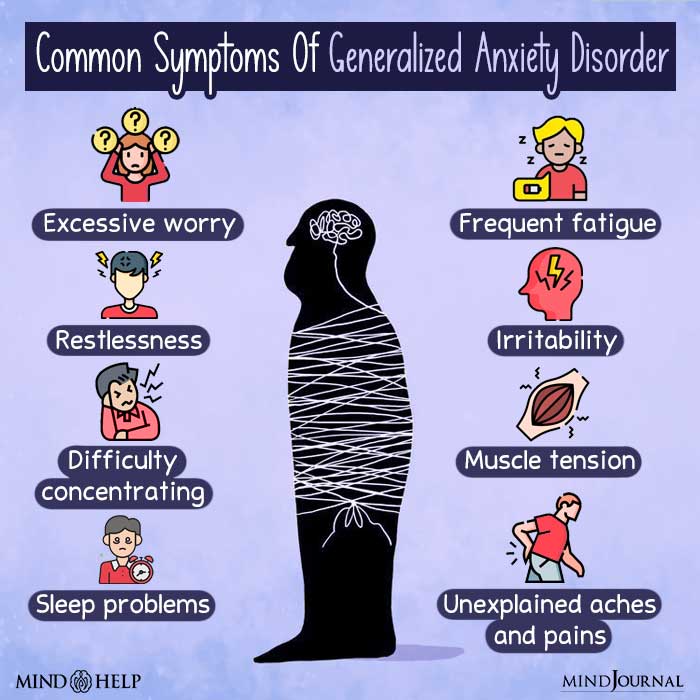
Causes of Hangxiety
Understanding the causes can better help us decode post drinking anxiety meaning. The experience of hangxiety can be attributed to several factors:
1. Alcohol’s Impact on Neurotransmitters
Alcohol affects the levels of neurotransmitters in the brain, such as serotonin and gamma-aminobutyric acid (GABA). These neurotransmitters play a crucial role in regulating mood and anxiety.
After alcohol leaves the system, there can be a temporary imbalance in these neurotransmitters, contributing to feelings of unease and anxiety.
2. Dehydration
Alcohol is a diuretic, meaning it increases urine production and can lead to dehydration. Dehydration can contribute to feelings of anxiety, as it affects brain function and overall well-being.
3. Sleep Disruption
Alcohol can disrupt your sleep patterns, causing fragmented and poor-quality sleep. Lack of restorative sleep can amplify anxiety symptoms, making you more prone to experiencing hangxiety.
4. Alcohol Withdrawal
The body goes through a form of alcohol withdrawal as it processes and eliminates the alcohol from the system. This can lead to increased heart rate, nervousness, and restlessness, all of which are common symptoms of anxiety.
5. Memory of Behavior
The anxiety experienced during hangxiety might also be linked to a person’s memory of their behavior while under the influence of alcohol. The memory-impairing effects of alcohol can lead to fragmented recollections of the previous night’s events.
Individuals may experience regret or concern about their actions, conversations, or decisions made while drinking, leading to feelings of embarrassment and guilt.
6. Sleep Quality
Alcohol can lead to disrupted sleep cycles and sleep patterns, leading to poor-quality sleep. This can exacerbate feelings of anxiety. Poor sleep can lead to physical discomfort, fatigue, headaches, irritability and post drinking anxiety.
7. Physical Symptoms
Hangovers can bring physical symptoms like nausea, headaches, and stomach discomfort, which can intensify the overall discomfort and anxiety.
8. Blood Sugar Fluctuations
Alcohol can lead to fluctuations in blood sugar levels, which can contribute to feelings of shakiness, weakness, and irritability.
9. Metabolic Toxins
The breakdown of alcohol in the body can produce metabolic toxins, which may contribute to a general sense of malaise and discomfort.
10. Social Consequences
Feelings of regret and anxiety are often triggered by memories of behaviors or statements made under the influence of alcohol, leading to concerns about social consequences.
11. Individual Variation
It’s important to note that not everyone who drinks alcohol will experience post drinking anxiety, and the severity of these symptoms can vary widely among individuals.
Some people may be more prone to hangxiety due to their unique physiology and psychological makeup.
To manage hangxiety, individuals can consider moderating their alcohol intake, staying hydrated, getting sufficient sleep, and practicing relaxation techniques. Reducing or eliminating alcohol consumption is another approach for those who find that post drinking anxiety is a recurring issue or significantly affects their well-being.
Related: What Is Bed Rotting Trend? How Taking A Break Can Improve Your Well-Being
Hangxiety: How To Stop Anxiety After Drinking? 5 Ways
Wondering how to get rid of anxiety after drinking? Here are some helpful tips on hangover anxiety cure that you must know about –
1. Hydration
One of the most effective ways to alleviate post drinking anxiety is to stay hydrated. Drink plenty of water before, during, and after consuming alcohol. Hydration helps mitigate the physical and psychological effects of alcohol, reducing the severity of post drinking anxiety.
2. Self-Care and Rest
Prioritize self-care and rest after a night of drinking. Engage in activities that help you relax and unwind, such as taking a warm bath, practicing deep breathing exercises, or indulging in a hobby you enjoy.
Resting and giving yourself time to recover can significantly reduce post drinking anxiety symptoms.
3. Balanced Nutrition
Consuming a balanced diet rich in nutrients can support your body in recovering from the effects of alcohol. Eat foods that are high in vitamins, minerals, and antioxidants to replenish your body and support your overall well-being.
4. Limit Alcohol Consumption
If hangxiety becomes a recurring issue, it may be beneficial to reevaluate your drinking habits. Consider reducing your alcohol intake or finding alternative social activities that don’t involve heavy drinking.
Moderation is key to avoid the debilitating effects of post drinking anxiety or post drinking anxiety.
5. Seeking Professional Help
If hangxiety persists or significantly impacts your daily life, it’s essential to seek professional help. A mental health professional can provide guidance, support, and therapeutic interventions to help you manage and overcome hangxiety effectively.
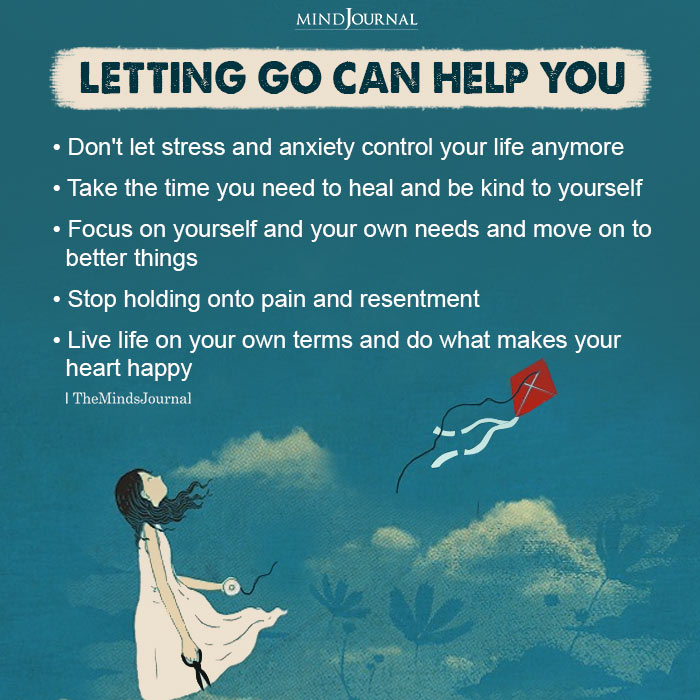
Takeaway
Hangxiety can cast a dark shadow on what should have been a pleasurable night out. However, understanding the symptoms, causes, and coping mechanisms can empower you to regain control over your emotional well-being.
By staying hydrated, practicing self-care, and seeking professional help if needed, you can conquer this and enjoy a more balanced and anxiety-free life.
Remember, you are not alone in this journey, and with the right tools and support, you can overcome hangxiety and embrace a brighter, more carefree tomorrow.
Related: Less Drinking, More Self-Care: 5 Fun Things Recovering Alcoholics Can Do Instead of Drinking
Frequently Asked Questions (FAQs):
How do I get rid of Hangxiety?
To alleviate post drinking anxiety, stay hydrated, get rest, eat balanced meals, avoid excessive alcohol, practice relaxation techniques, and seek professional help if needed.
How long does Hangxiety last for?
The duration of post drinking anxiety can vary widely but typically lasts as long as the alcohol is present in the body and its effects wear off.
What supplements help Hangxiety?
Supplements like vitamin B-complex, magnesium, and electrolytes may help alleviate symptoms of post drinking anxiety by supporting overall health and well-being.
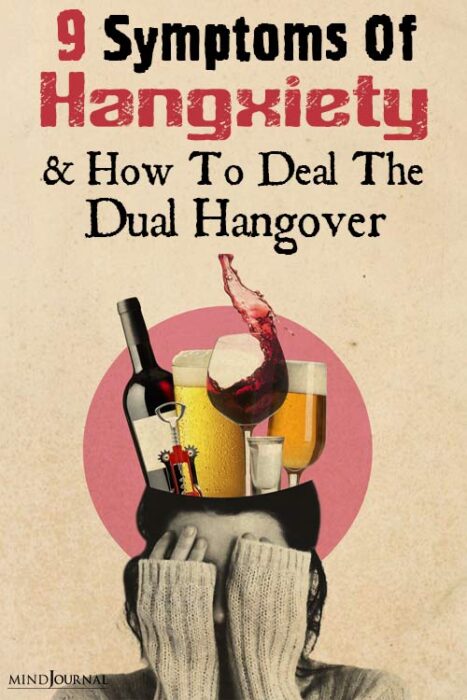
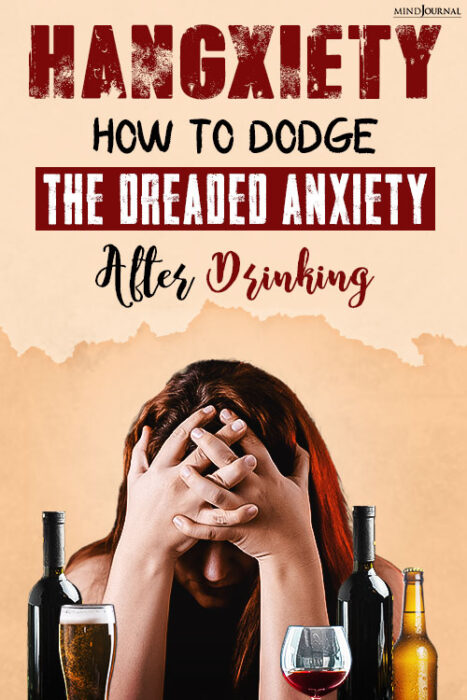
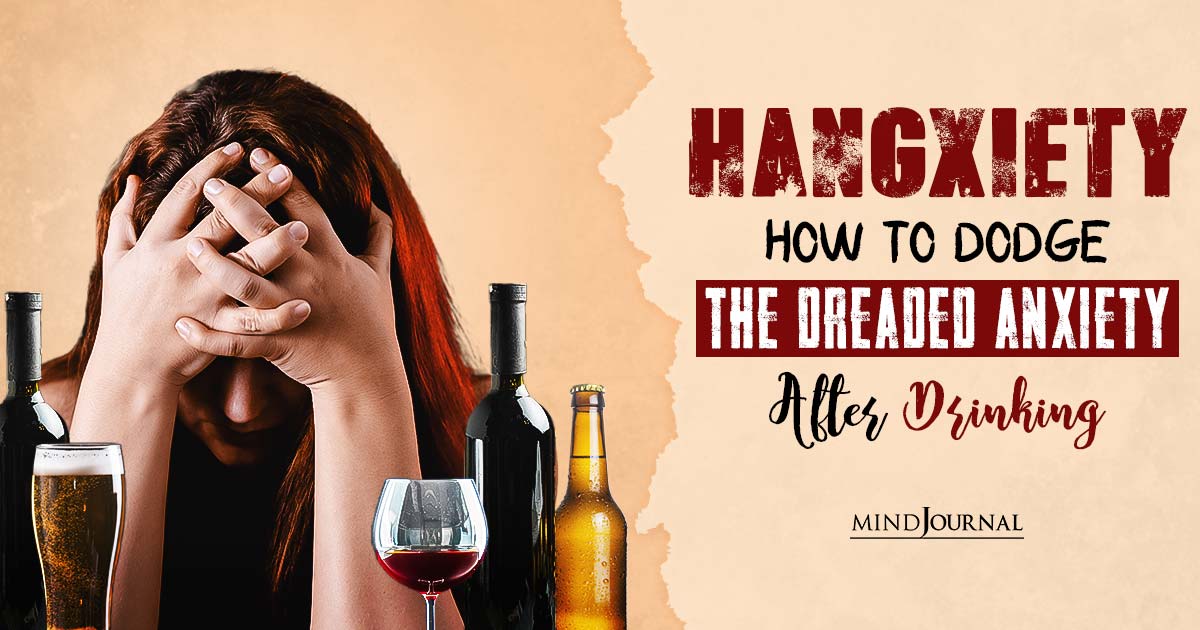







Leave a Reply
You must be logged in to post a comment.